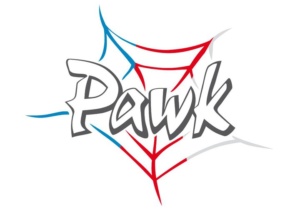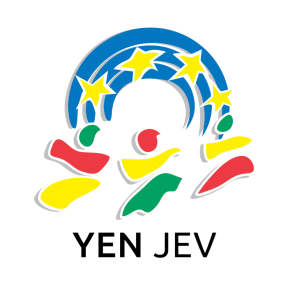Pawk e.V. – Serbske młodźinske towarstwo / Sorbischer Jugendverein (Lusatian Sorbs)

Adresse: Postplatz 2
Ort: D-02625 Bautzen
E-Mail: board-pawk@gmx.de
Webpage: www.pawk.de
Organisation
In December 1994 the Sorbian youth association Pawk was founded with the main office in Bautzen/Budyšin. It was the first youth association, that became member of the umbrella organisation of the Sorbs, the Domowina.
The Youth of European Nationalities (YEN) has been organizing seminars for some years before in order to promote the international exchange of young minority representatives. In the early 1990s, also young Sorbs took part in these seminars. The experiences and exchanges with other national minorities led 1993/94 to the idea that an independent association can be more effective than individuals.
Pawk is the Sorbian name for spider. The name shows one main objective of the association: networking between young people – both Sorbian, German and others. The club is a contact point for the whole Sorbian youth, for which it creates both leisure and learning programs. Pawk promotes the Sorbian language in its projects, advises young people, gives them the opportunity to try out voluntary work and represents their interests at local, regional and European level. Through the YEN-membership, the Sorbian youth has the opportunity to attend international youth exchanges several times per year and participate actively in European minority politics.
In cooperation with the YEN, the Diversity Festival 2015 was organized by Pawk in Bautzen/Budyšin.
Minority
Umbrella organisation: Domowina – the Federation of Lusatian Sorbs with 9 affiliated associations and five regional associations in the Sorbian settlement area (http://www.domowina.sorben.com/)
Language promotion: Witaj-Language Centre (http://www.witaj-sprachzentrum.de/)
Funding: Foundation for the Sorbian People (http://stiftung.sorben.com)
Associations: Sorbian cultural tourism (http://www.tourismus-sorben.com/de/), school association, association of artists, denominational associations, science association, business association, youth association Pawk, youth clubs, student organisations, Sokoł sports movement, association for Sorbian folk culture, association for singing, choirs, dancing groups, theathre groups
Other institutions: publishing (Domowina publishing) including the German edition of Sorbian print media, scientific institute (Serbski institut), the Institute of Sorbian Studies at the University of Leipzig, Sorbian National Ensemble (Serbski ludowy ansambl), Sorbian Museums and Heimatstuben, German-Sorbian Theater in Bautzen, Sorbian cultural and tourist information in Bautzen and Cottbus, Sorbian kindergarden “Stup dale” in Dresden
Media: Independent Upper Sorbian evening newspaper (Serbske Nowiny), independent Lower Sorbian weekly newspaper (Nowy Casnik), monthly cultural magazine (Rozhlad), religious weeklies (Pomhaj Bóh, Katolski Posoł), radio and television broadcasts on public television (Central German Broadcasting / Upper Sorbian radio: 3 hours morning radio show on weekdays and four hours on Saturdays and 1.5 hours on Sundays and since 1999 two hours youth program on Monday evening; since 2001, monthly half-hour magazine Saturday lunch time and bilingual every Sunday broadcast of the evening greeting for children “Sandmännchen”, Ostdeutscher Rundfunk Brandenburg / Lower Sorbian Broadcasting: in total 6.5 hours per week and half hour news magazine)
Flag: blue-red-white
Symbol: linden leaf
(Sources: „Kleine Informationen zu den Sorben“, „Die Sorben in Deutschland“, www.pawk.de, Wikipedia)
History
Between the 5th and the 6th century a west-Slavic nation, called the “Lusici”, settled down in the area, which is today called Lower Lusatia. At the same time there was another Slavic nation living in Upper Lusatia, the “Milzener”.
The following centuries were full of varied history and threatening happenings; the more surprising it is that there are still descendants from these Slavic nations living in the hinterland of Bautzen/Budyšin, Kamenz/Kamjenc, Hoyerswerda/Wojerecy, Weißwasser/Běła Woda, Spremberg/Grodk, Cottbus/Chóśebuz, Lübbenau/Lubnjow and Guben/Gubin. They have conserved their own language, individuality and culture – without ever having an own state.
Throughout the centuries the settlement area and number of speakers got reduced, with the status of being minority in your own country.


